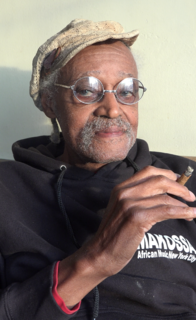A Quote by Ruth Negga
America has a black president, but there are no black studio heads, and there just aren't that many black people working anywhere on film sets, let alone in positions of power in Hollywood. That's what needs to change.
Related Quotes
The first thing that always pops into my head regarding our president, is that all of the people who are setting up this barrier for him... They just conveniently forget that Barack had a mama, and she was white - very white; American, Kansas, middle of America. There is no argument about who he is, or what he is. America's first black president hasn't arisen yet. He's not America's first black president. He's America's first mixed-race president.
The black man in North America was sickest of all politically. He let the white man divide him into such foolishness as considering himself a black 'Democrat,' a black 'Republican,' a black 'Conservative,' or a black 'Liberal' ...when a ten-million black vote bloc could be the deciding balance of power in American politics, because the white man's vote is almost always evenly divided.
For black America needs a politics whose first mission isn't the reinforcement of the idea of black America; and a discourse of race that isn't centrally concerned with preserving the idea of race and racial unanimity. We need something we don't yet have: a way of speaking about black poverty that doesn't falsify the reality of black advancement; a way of speaking about black advancement that doesn't distort the enduring realities of black poverty.
As a black person on the outside, because there's so much black art and so much of black people's work circulating, so many people imitating what black people do, you would think that there'd be more black people on the business side. It didn't cross my mind that every label head, for the most part, is a white guy.
Obviously, I'm not not black. But this is one thing I do know after years and years of working with a lot of black players and black commentators on many networks: That if you go to the place of you're telling a black man, or a black woman, that 'You should know your place and stay in it,' when you get to there, them's fighting words.
I wanted to make sure the focus [in The Land] was on human beings themselves and their decisions, but still connected to the urban environment that people associate as being black. I think I was able to make a film without commenting on "black this or black that" and you still feel the presence of it. There's no one character who's saying "we're all black and we're all in this struggle." It's that you just feel it. Some of that is because we get the sense from a lot of independent films that black people struggle all the time.


































